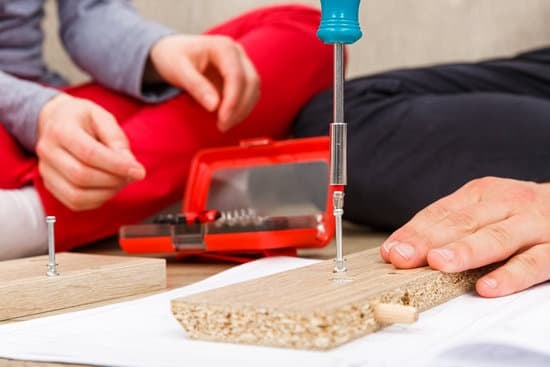Homeownership is a significant investment, and one of the key financial benefits that come with owning a home is building equity. In simple terms, home equity is the value of your home minus any outstanding mortgage balance. One way to increase this equity is through strategic home improvements. This article will delve into the impact of various renovations on home equity and provide valuable insight for homeowners looking to maximize their property’s value.
By making specific changes to your home, you can potentially increase its market value, which in turn boosts your overall equity. From major renovations like kitchen remodels to minor upgrades such as landscaping, each improvement has the potential to make a difference. Understanding the impact of different home improvements on equity is crucial for homeowners who want to make informed decisions about where to invest in their properties.
It’s essential to factor in location-based and market-related influences along with the quality of materials and workmanship when considering how much added value a particular improvement will bring. Additionally, analyzing the return on investment (ROI) for different projects can help homeowners prioritize their renovations effectively. This article aims to provide comprehensive guidance on navigating these aspects of leveraging home improvements for building equity.
Understanding the Impact of Different Home Improvements on Equity
When considering how much value home improvements add to equity, it’s important to understand the impact of different types of renovations on the overall value of a property. Major renovations such as kitchen and bathroom remodels tend to have a significant impact on home equity.
According to Remodeling Magazine’s 2020 Cost vs. Value report, a minor kitchen remodel can recoup about 77.6% of its cost in added home value, while a midrange major kitchen remodel can recoup about 62.9% of its cost.
In addition to major renovations, minor upgrades like landscaping or cosmetic improvements can also positively affect home value and equity. Simple enhancements like adding a fresh coat of paint, improving curb appeal with landscaping, or updating light fixtures can all contribute to increasing the overall equity in a home.
According to the National Association of Realtors’ 2019 Remodeling Impact Report, upgrading landscaping was rated as one of the most appealing projects for buyers and had a high potential return on investment when it came to increasing home value.
It’s clear that both major and minor home improvements play a role in adding value to property equity. Homeowners should carefully consider their options and prioritize projects that will provide the best ROI in terms of increasing their home’s equity.
| Type of Improvement | ROI Percentage |
|---|---|
| Minor Kitchen Remodel | 6% |
| Midrange Major Kitchen Remodel | 9% |
| Landscaping Upgrade | Not specified but has high potential ROI |
Factors That Determine the Added Value of Home Improvements
When it comes to determining how much value home improvements add to equity, one of the key factors to consider is the location of the property. Different areas have varying housing markets, and certain improvements may have a greater impact on equity in one area compared to another. For example, adding a swimming pool may significantly increase home value in a warm climate region, but may not have the same effect in a colder climate.
Market-related factors such as overall demand for certain features or amenities can also influence the added value of home improvements. Understanding local market trends and buyer preferences is crucial when planning renovations aimed at increasing equity.
Quality of Materials and Workmanship
In addition to location and market factors, the quality of materials used in renovations and the level of workmanship can also play a significant role in determining the added value to home equity. High-quality materials and expert craftsmanship are likely to result in a higher increase in home value compared to lower-quality materials and subpar workmanship.
For example, investing in high-end kitchen cabinets made from solid wood rather than cheap particle board might yield a greater return on investment when selling your home. Similarly, hiring skilled professionals for construction, electrical, plumbing, and other renovation work can ensure that improvements are done correctly and up to standard.
Considering these factors when planning home improvements can help homeowners make informed decisions about which projects will result in the greatest increase in their property’s equity. By carefully evaluating location-based and market-related influences as well as prioritizing quality materials and workmanship, homeowners can maximize the potential added value of their renovation projects.
The ROI of Home Improvements
When considering making home improvements, it’s essential to understand the potential return on investment (ROI) that these upgrades can bring. The ROI of home improvements refers to the amount of value added to a property compared to the cost of the renovation. This section will delve into the concept of ROI in the context of home improvements and provide insight into which projects offer the best potential for increasing equity.
Calculating ROI
Calculating the ROI of a home improvement project involves comparing the cost of the renovation with the increase in home value that it generates. For example, if a homeowner spends $20,000 on a kitchen remodel and the overall value of their home increases by $30,000 as a result, then the ROI for that renovation would be 50%.
Understanding how to calculate this percentage is crucial for homeowners to make informed decisions about which projects are most likely to yield high returns.
Potential ROI of Different Projects
Not all home improvement projects offer the same potential ROI. Major renovations such as kitchen and bathroom remodels often provide some of the highest returns due to their significant impact on a home’s overall appeal and functionality.
In contrast, minor upgrades like landscaping or cosmetic improvements may have a lower upfront cost but can also result in a smaller increase in equity. This section will explore specific examples of different home improvement projects and their potential ROI, providing homeowners with valuable insight into where they can invest their money most effectively.
Considering Long-Term Benefits
In addition to calculating immediate ROI, it’s important for homeowners to consider long-term benefits when evaluating potential home improvement projects. Some renovations may not yield high short-term returns but could contribute significantly to a property’s overall appeal and desirability over time. By weighing both immediate and long-term ROI, homeowners can make strategic decisions about which improvements are most likely to maximize their equity over the years.
Professional vs DIY Home Improvements
When it comes to making home improvements, homeowners often face the decision of whether to hire a professional or tackle the project as a do-it-yourself (DIY) endeavor. This decision can have a significant impact on how much value is added to the equity of the home. Hiring a professional for renovations may initially cost more, but it can potentially add greater value to the home’s equity in the long run.
Professional renovations, such as major kitchen or bathroom remodels, tend to have a higher impact on home equity compared to minor cosmetic upgrades or DIY projects. This is due to the expertise and quality of workmanship that professionals bring to the table. Their ability to execute high-quality renovations with durable materials can result in a larger increase in home value and equity compared to amateur DIY projects.
On the other hand, while DIY projects can certainly add some value to a home, they may not yield as high of an increase in equity compared to professional renovations. While there are cost savings associated with undertaking DIY projects, they may not always provide the same level of quality and craftsmanship that professionals can deliver.
As a result, the equity-boosting potential of these DIY projects may be more limited. It’s important for homeowners to carefully consider their skills and capabilities before deciding whether to pursue a DIY approach or opt for hiring a professional for their home improvements.
Ultimately, when it comes to adding value to home equity through renovations, homeowners should weigh the benefits of hiring professionals versus embarking on DIY projects. While each approach has its pros and cons, it’s important for homeowners to consider their specific circumstances and budget constraints.
The decision should be based on the scale and complexity of the project, as well as their own skillset and available time. By carefully evaluating these factors, homeowners can make informed decisions about how best to maximize their potential equity-building from home improvements.
Other Benefits of Home Improvements Besides Equity
Home improvements can add significant value to a home by increasing its equity, but there are also several other benefits that come with these upgrades. Beyond just the financial aspect, renovations and improvements can greatly enhance the overall comfort and aesthetics of a home, making it a more enjoyable place to live. For many homeowners, these non-financial benefits are equally as important as the increase in equity.
One major benefit of home improvements is the potential for increased energy efficiency. Upgrading to energy-efficient appliances, windows, and insulation can not only reduce utility bills but also make the home more environmentally friendly. Additionally, improving the functionality and layout of a home through renovations can enhance convenience and usability for its residents.
Furthermore, aesthetically pleasing improvements such as landscaping or interior design updates can contribute to an improved quality of life. A well-maintained and visually appealing living space can have positive effects on mental wellbeing and overall satisfaction. These factors may not necessarily be quantifiable in terms of monetary value, but they undoubtedly play a significant role in maximizing the overall worth of a property.
In addition to boosting equity, home improvements can also increase the sense of pride and satisfaction for homeowners. Creating a space that reflects one’s personal style and preferences can lead to a stronger emotional attachment to the property.
This is particularly important for individuals who view their homes as long-term investments and want to derive maximum enjoyment from their living spaces. Overall, while improving equity is certainly a primary motivation for home renovations, it’s important not to overlook the various non-financial advantages that come with these enhancements.
| Non-Financial Benefits of Home Improvements | Impact on Homeowners |
|---|---|
| Increased energy efficiency | Reduced utility bills and environmental impact |
| Enhanced comfort and usability | Improved functionality of living spaces |
| Aesthetic appeal | Positive effects on mental wellbeing and overall satisfaction |
| Sense of pride and satisfaction | Stronger emotional attachment to property |
Maximizing Equity Through Strategic Home Improvements
When it comes to maximizing equity through strategic home improvements, there are several factors to consider in order to achieve the best outcome for your investment. Here are some tips and strategies for homeowners who want to ensure that their home improvements contribute significantly to increasing their home equity:
- Conduct a thorough research: Before starting any home improvement project, it’s essential to research the specific renovations or upgrades that are most likely to add value to your property. This can include looking at current market trends, consulting with real estate professionals, and analyzing the needs of potential buyers in your area.
- Focus on high-impact areas: When planning your home improvements, prioritize the areas or features of your home that are known to have a significant impact on its overall value. This can include kitchen and bathroom remodels, adding square footage through extensions, or improving energy efficiency.
- Quality over quantity: It’s important to prioritize quality over quantity when it comes to materials and workmanship for your renovations. Cutting corners or opting for subpar materials may result in short-term cost savings, but they can ultimately detract from the overall value of your property.
By applying these strategies and taking a thoughtful approach to home improvements, homeowners can increase the likelihood of achieving a substantial boost in their home equity. Additionally, proper planning and prioritization can ensure that the financial investment put into renovations will yield a favorable return on investment (ROI) in the long run.
Ultimately, strategic home improvements not only enhance the aesthetic appeal and functionality of a property but also serve as an effective means of building long-term equity. Whether you’re looking to sell your home in the near future or simply want to increase its value for personal financial reasons, approaching renovations with an eye toward maximizing equity is a prudent strategy for homeowners.
Conclusion
In conclusion, the value that home improvements add to equity can be significant, but it ultimately depends on various factors such as the type of renovations, location, and quality of work. Major renovations like kitchen and bathroom remodels have the potential to significantly increase home equity, while minor upgrades can also contribute to a boost in home value. It is important for homeowners to carefully consider the potential return on investment (ROI) of different improvement projects before diving into them.
While financial benefits are a key factor in considering home improvements for equity growth, there are also non-financial benefits to be considered. Increased comfort, aesthetics, and functionality can also contribute to overall home value, making it a worthwhile investment beyond just financial gains. It’s important for homeowners to weigh both the financial and non-financial impacts when planning their improvement projects.
Ultimately, leveraging home improvements to build equity requires strategic planning and prioritization. With careful consideration of the type of renovations, market factors, and potential ROI, homeowners can maximize the impact of their improvement projects on their home’s equity. By taking proactive steps and making informed decisions about their home improvements, homeowners can effectively build equity and enhance the overall value of their property.
Frequently Asked Questions
Do Home Improvements Increase Equity?
Home improvements can increase equity as they can raise the overall value of a property. Upgrading kitchens, bathrooms, or adding extra rooms can make the home more appealing to potential buyers, thus increasing its equity.
Is It Wise to Use Home Equity for Home Improvements?
It can be wise to use home equity for improvements if the renovations will significantly increase the value of the home. However, it’s important to consider the financial implications and make sure the investment will pay off in the long run.
Is $100 000 Enough to Renovate a House?
Whether $100,000 is enough to renovate a house depends on the scope of the project and location. In some areas, $100,000 can go a long way towards renovations, while in others it may only cover basic improvements. It’s best to consult with a contractor to determine if this budget is sufficient for your specific renovation plans.

I’m thrilled to have you here as a part of the Remodeling Top community. This is where my journey as an architect and remodeling enthusiast intersects with your passion for transforming houses into dream homes.





